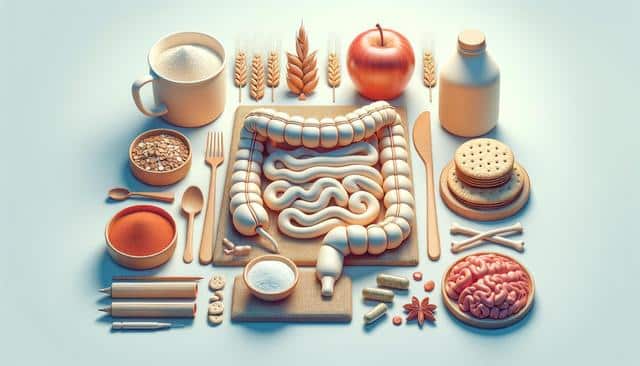
Foods to Avoid for Colitis Relief: A Guide to Easing Gut Inflammation
Understanding the Role of High-Fiber Vegetables
While vegetables are generally considered a cornerstone of a healthy diet, those suffering from colitis may need to navigate their choices carefully. High-fiber vegetables, such as broccoli, cabbage, and Brussels sprouts, can often exacerbate symptoms due to their complex fiber content that is hard to digest. For individuals with colitis, reducing the intake of these vegetables may help in minimizing flare-ups and easing discomfort. Instead, opting for low-fiber alternatives like cooked carrots, peeled potatoes, and squash can be gentler on the digestive tract. Cooking methods also play a significant role; steaming or boiling vegetables until soft can enhance digestibility and reduce the risk of irritation.
The Impact of Dairy on Gut Health
Dairy products are another group of foods that can be problematic for those with colitis. Many individuals have lactose intolerance, which can lead to increased inflammation in the gut. This is particularly pertinent for colitis patients, as inflammation is already a significant concern. To mitigate this, it may be beneficial to reduce or eliminate dairy from the diet. Alternatives such as almond milk, coconut yogurt, and dairy-free cheeses can provide similar textures and flavors without the inflammatory side effects. It’s important to monitor individual tolerance, as some may still enjoy low-lactose options like hard cheeses and lactose-free milk without adverse effects.
Spicy Foods and Their Effects
Spicy foods, while delicious for many, can be a trigger for colitis symptoms. Ingredients like hot peppers, chili powder, and curry can irritate the lining of the digestive tract, leading to increased pain and inflammation. Avoiding these ingredients or substituting with milder flavors may help maintain comfort and reduce flare-ups. For those who enjoy a bit of heat, experimenting with milder spices such as cumin, coriander, or using fresh herbs like basil and oregano can enhance meals without causing distress. Balancing flavors with gentle spices can allow individuals to enjoy their meals while keeping inflammation at bay.
Incorporating Gut-Friendly Foods
Emphasizing gut-friendly foods that promote healing and comfort is essential for managing colitis. These foods include low-fiber fruits like bananas and applesauce, lean proteins such as chicken and fish, and refined grains like white rice and pasta, which are easier to digest. Additionally, incorporating probiotics through foods like kefir, sauerkraut, and miso can support gut health by promoting beneficial bacteria. These dietary choices can help soothe the gut lining and maintain a balance in the digestive system, making them valuable components of a colitis-friendly diet.
Personalizing Your Dietary Approach
Every individual’s experience with colitis is unique, making it crucial to personalize dietary choices. Keeping a food diary can be an effective way to identify specific triggers and foods that may cause discomfort. Consulting with a healthcare provider or a registered dietitian can provide tailored guidance to develop a diet plan that minimizes inflammation while ensuring nutritional needs are met. As dietary preferences and tolerances vary, this personalized approach allows for a balanced diet that supports overall well-being while managing colitis symptoms effectively.
Conclusion: Adapting Diet for Colitis Management
Understanding and adapting dietary habits play a vital role in managing colitis and reducing gut inflammation. By identifying trigger foods such as high-fiber vegetables, dairy, and spicy ingredients, and replacing them with gentle, gut-friendly alternatives, individuals can alleviate symptoms and improve their quality of life. Personalizing dietary choices with the help of professionals ensures that the diet not only minimizes discomfort but also supports overall health. Embracing these dietary changes can lead to a more comfortable and balanced lifestyle for those dealing with colitis.